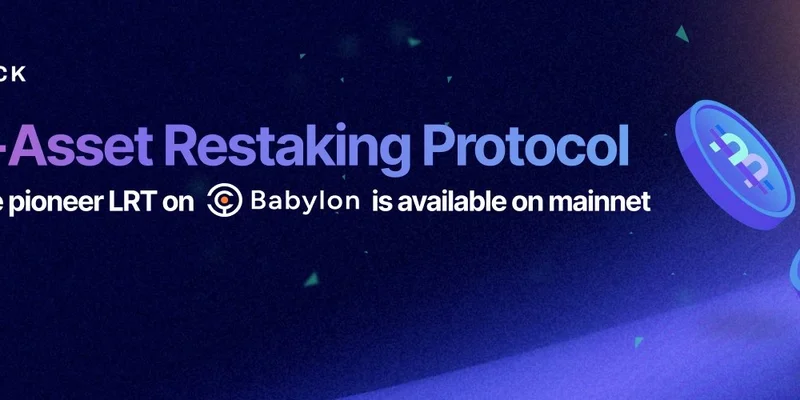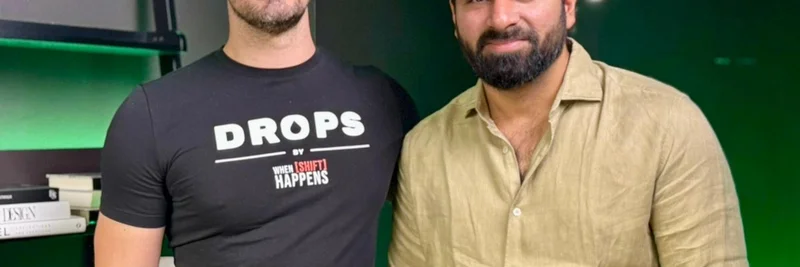Hey folks! Ever stumbled upon the "BR" token on the BNB Chain and wondered what it's all about? You're not alone! While the crypto world is full of tokens, BR has a specific job within a project called Bedrock. Let's dive in and break it down simply.
At its core, the BR token (contract address: 0xff7d6a96ae471bbcd7713af9cb1feeb16cf56b41) is the native token for the Bedrock protocol, which lives on the BNB Smart Chain (BSC). Think of Bedrock as a super cool tool that lets you earn extra yield on your crypto assets without locking them up completely. It's a multi-asset liquid restaking protocol.
What is Bedrock and Liquid Restaking?
Okay, "liquid restaking" sounds a bit techy, right? Here’s the simple version: Normally, when you "stake" crypto, you lock it up to help secure a network and earn rewards. But while it's staked, you can't use it for anything else. Liquid restaking protocols like Bedrock change that. They let you stake assets like Ethereum (ETH), Bitcoin (BTC), and even IOTX and give you a "liquid" token back (like uniETH, uniBTC, or uniIOTX). You can then use these liquid tokens in other decentralized finance (DeFi) apps, maximizing your earning potential simultaneously!
Bedrock is pioneering what they call "BTCFi 2.0" with a token called brBTC, aiming to make Bitcoin a more active player in DeFi across different blockchains.
The Role of the BR Token
The BR token isn't just for show; it's crucial to the Bedrock ecosystem.
- Governance: BR is the governance token. This means BR holders get a say in how the Bedrock protocol develops. By converting BR into veBR (a voting escrow token), you can participate in important decisions about protocol upgrades, changes, and more. This keeps the project community-driven.
- Utility: It powers ecosystem incentives and is integral to the liquid restaking process.
Token Details and Quick Stats
Here’s a quick look at the BR token's technical side:
- Name: Bedrock
- Symbol: BR
- Blockchain: BNB Smart Chain (BSC)
- Standard: BEP-20 (this is like the ERC-20 standard on Ethereum, but for the BNB Chain)
- Contract Address:
0xff7d6a96ae471bbcd7713af9cb1feeb16cf56b41 - Total Supply: There seems to be slightly different info out there, but the data from BscScan points to 1,000,000,000 BR.
- Decimals: 18 (standard for BEP-20, allowing for precise amounts).
- Initial Price (IDO): $0.025 USD
Market Snapshot
The market for BR tokens is dynamic.
- Current Price: It fluctuates, but recent reports show it trading around $0.05 to $0.06 USD.
- Market Cap: This also varies depending on the source and price, ranging roughly from $12 million to over $60 million USD.
- Trading Volume: 24-hour volume can be quite variable, from a few hundred thousand to several million dollars, showing active trading.
- Fully Diluted Valuation (FDV): Around $57-58 million USD.
Remember, these numbers change constantly in the crypto market!
Where to Trade BR
You can find BR tokens on several platforms:
- Centralized Exchanges (CEXs): Popular spots include MEXC, Gate.io, LBank, Bitget, and OrangeX. Some offer both spot and futures trading.
- Decentralized Exchanges (DEXs) on BNB Chain: You can trade BR on DEXs like PancakeSwap (often paired with WBNB or USDT) and ThenaFi. Be mindful that liquidity pools, especially those offering high Annual Percentage Rates (APRs) like the reported 621% for BR/BNB on ThenaFi, come with the risk of "impermanent loss."
Under the Hood: Technical Bits
The BR token is built on the BEP-20 standard using the Solidity programming language (version 0.8.17). The smart contract incorporates features like:
- Burnable Tokens: Tokens can be destroyed, which can reduce the total supply over time.
- Access Control: It uses role-based permissions (like MINTER_ROLE for creating new tokens or FREEZER_ROLE for restricting transfers to specific addresses). This introduces some centralized control elements, which is something to be aware of.
- OpenZeppelin Libraries: The contract uses well-regarded libraries from OpenZeppelin, which helps reduce the risk of common coding vulnerabilities.
While it uses standard practices and libraries, keeping an eye out for any official smart contract audits is always a good idea.
Community and Ecosystem
Bedrock and the BR token are firmly integrated into the lively BNB Chain ecosystem. BNB Chain is known for its fast transaction speeds and low fees, making it a suitable home for DeFi protocols like Bedrock.
The project has an active community presence, which you can often find engaging on platforms like X (formerly Twitter) and Telegram.
Potential and Points to Consider
Bedrock, with its focus on multi-asset liquid restaking and positioning in the evolving BTCFi space, has the potential to grow within the DeFi sector.
However, it's crucial to remember the risks:
- Market Volatility: Like all cryptocurrencies, BR's price can swing widely.
- Smart Contract Risk: While using reputable libraries, the complexity of smart contracts always carries some risk.
- Impermanent Loss: If you provide liquidity to BR pools on DEXs, you face the risk of impermanent loss if the price ratio between BR and the paired asset changes significantly.
- Centralization Points: The
FREEZER_ROLEin the smart contract means certain parties have the ability to restrict token transfers, which is a centralized feature. - Regulatory Environment: The regulatory landscape for DeFi is still developing, which can introduce uncertainties.
It's also worth noting that Bedrock is fundamentally a DeFi technology project focused on utility and governance, rather than a typical meme token primarily driven by internet culture or viral trends. This distinction is important when assessing its purpose and potential.
Tracking BR with Tools
For those keen on tracking BR and other tokens, platforms like GMGN.AI specialize in analyzing and trading meme tokens across various chains, including BSC. GMGN.AI provides features like smart money tracking, real-time analytics, and security checks. You can specifically find information and trading options for BR on their platform here.
Wrapping Up
The BR token is the governance and utility token powering the Bedrock liquid restaking protocol on the BNB Chain. It plays a key role in enabling multi-asset yield generation and community governance. While it shows potential within the DeFi space and is available on various exchanges, potential users and investors should always do their own thorough research (DYOR!) and understand the associated technical and market risks before getting involved.
Whether you're interested in liquid restaking, governance, or simply tracking promising tokens on BNB Chain, understanding the BR token and the Bedrock protocol is a solid step.



